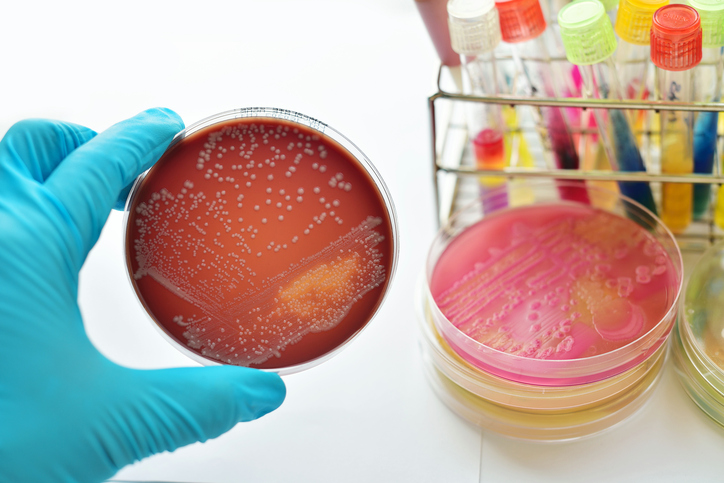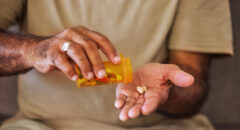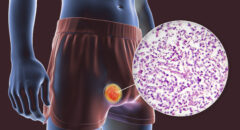 The World Health Organization (WHO) announced in 2022 that the world is running out of ways to treat once easily-curable sexually transmitted infections. The outlook on these infections is the same and even more so now. The infection is reportedly becoming increasingly resistant to antibiotics due to “misuse and overuse” of antibiotics, according to WHO. The organization also released new guidelines for treatment for some of these STDs, which are also becoming resistant to the drugs typically used to treat them.
The World Health Organization (WHO) announced in 2022 that the world is running out of ways to treat once easily-curable sexually transmitted infections. The outlook on these infections is the same and even more so now. The infection is reportedly becoming increasingly resistant to antibiotics due to “misuse and overuse” of antibiotics, according to WHO. The organization also released new guidelines for treatment for some of these STDs, which are also becoming resistant to the drugs typically used to treat them.
4 STDs that are Becoming Untreatable
1. Gonorrhea
Gonorrhea is a relatively common disease, infecting 78 million people each year. Anyone who is sexually active can get gonorrhea, and the disease can spread like wildfire through unprotected sex. Some infected people have no symptoms at all, while others may experience burning with urination, and a swarm of other genital affections. If untreated gonorrhea can occasionally spread to affect joints or heart valves.
MUST READ: The STD Most Black Women Don’t Talk About, But Should
Traditionally, treating gonorrhea has been easy with antibiotics. But resistance to antibiotics has grown dramatically in recent years. Strains of multidrug-resistant gonorrhea that do not respond to any available antibiotics have already been detected, the main cause for this being antibiotics overuse in trivial cases.
“Gonorrhea used to be susceptible to penicillin, ampicillin, tetracycline and doxycycline — very commonly used drugs,” said Jonathan Zenilman, who studies infectious diseases at Johns Hopkins. “But one by one, each of those antibiotics — and almost every new one that has come along since — eventually stopped working. One reason is that the bacterium that causes gonorrhea can mutate quickly to defend itself, Zenilman said.
Gonorrhea Symptoms to Watch For
Symptoms vary depending on the area of the body affected, and include:
- Urination: Painful or burning sensation when urinating
- Vaginal discharge: Increased vaginal discharge, especially if it’s yellow or greenish
- Vaginal bleeding: Bleeding between periods or after sex
- Vaginal itching: Vaginal itching and irritation
- Pain during sex: Discomfort or pain during sex
- Penis discharge: A white, yellow, or green discharge from the penis
- Painful testicles: Painful or swollen testicles
- Anal discharge: Discharge, pain, bleeding, or itching
- Rectal itching: Rectal itching
- Sore throat: A persistent itchy or sore throat, redness in the throat, fever, and swollen lymph nodes in the neck
- Lower abdominal pain: Severe pain in the lower abdomen
In light of the drug resistance to gonorrhea, the new guidelines from the WHO advise that doctors treating gonorrhea patients cease to prescribe quinolones, a class of antibiotics previously effective in the treatment of gonorrhea. Now, doctors are advised to use cephalosporins, a different class of antibiotics.
TAKE A LOOK: 4 STD’s You Can Get Without Having Sex
As for when antibiotic options will run out altogether, Teodora Wi of the WHO’s Department of Reproductive Health and Research tells the journal Science, “We will have to have new drugs in 5 years, I think.”
The U.S. government is spending millions of dollars through the CDC and National Institutes of Health to develop new antibiotics and combat resistance.
 2. Herpes
2. Herpes
Herpes comes in two forms: herpes simplex virus 1 (HSV-1) and herpes simplex virus 2 (HSV-2). Either of these viruses can cause genital herpes or oral herpes. However, HSV-1 usually causes oral herpes, while HSV-2 is more often associated with genital herpes.
Both forms of herpes are notable for the formation of blisters and sores in the infected areas. These sores are highly contagious and can be transmitted via skin-to-skin contact. Since it isn’t curable, herpes is a lifelong infection that can result in occasional recurring outbreaks during which symptoms temporarily reappear.
Herpes Symptoms to Watch Out for:
Most people with herpes have no symptoms or only mild symptoms. Many people aren’t aware they have the infection and can pass along the virus to others without knowing. Symptoms can include:
- Blisters or sores: These can appear as one or more blisters on or around the genitals, rectum, or mouth. They can also appear as bumps or ulcers. Blisters may break open, ooze, and then crust over.
- Pain: The sores can be painful.
- Flu-like symptoms: These can include fever, body aches, swollen glands, sore throat, or headache.
- Tingling, itching, or burning: This can occur near where the sores will appear.
- Pain when urinating: This can occur with genital herpes.
- Discharge: This can occur with genital herpes.
Treatment for herpes typically consists of antiviral medication for a specified timeframe (the exact time frame depends on the person under consideration and may be from several days or weeks to several months). The job of the antiviral medication is to stop the virus from replicating further in the body, which can help prevent or reduce the recurrence of outbreaks.
3. Hepatitis B
Hepatitis B is one of the leading causes of liver cancer. Babies usually receive a vaccine against this infection at birth, but many adults born before 1991 may not have received the vaccine.
Most cases of hepatitis B don’t cause symptoms and most adults can fight the infection on their own. If you have hepatitis B, your best option is to speak to your doctor about checking your liver and your medication options to lessen symptoms. Immune system modulators and antiviral medications can help slow the virus’s damage to your liver.
Hepatitis B Symptoms to Watch Out For:
Many people with chronic hepatitis B don’t have symptoms and don’t know they are infected. Symptoms may not appear for up to six months after infection. Symptoms usually appear 60–150 days after exposure and can include:
- Dark urine or clay-colored stools
- Feeling tired
- Fever
- Joint pain
- Loss of appetite
- Nausea, stomach pain, throwing up
- Yellow skin or eyes (jaundice)
4. HPV
Human papillomavirus is extremely common. About 9 out of 10 sexually active people will contract HPV. About 90 percent of these infections go away within two years of detection. However, HPV is still incurable and, in some cases, it can lead to:
- genital warts
- cervical cancer
- oral cancer
HPV Symptoms Women Should Watch Out for:
- Genital warts: Some strains of HPV can cause warts on the genitals or anus that can be seen or felt.
- Abnormal Pap test results: Women may find out they have HPV when they get an abnormal Pap test result during a cervical cancer screening.
- Bleeding after intercourse: Painful intercourse or bleeding after intercourse can be symptoms of HPV.
- Pelvic pressure or fullness: A sensation of pelvic pressure or fullness can be a symptom of HPV.
- Increased vaginal discharge: Increased vaginal discharge can be a symptom of HPV.
HPV Symptoms Men Should Watch for:
Some of the types of HPV associated with genital cancers can lead to cancer of the anus or penis in men. Both of these cancer types are rare, especially in men with a healthy immune system. The American Cancer Society (ACS) estimates that in 2022, about 2,070 men in the U.S. will be diagnosed with cancer of the penis and 3,150 men will be diagnosed with anal cancer.
The symptoms of HPV-related anal cancer include:
- bleeding, discharge, pain, or itching of the anus
- swelling of the lymph nodes in the anal or groin area
- changes in bowel habits or the shape of stools
Penile cancer can lead to:
- tissue changes on the penis, such as color, skin thickening, or tissue buildup
- painful or painless sores or growths on the penis that might bleed
Cancer of the back of the throat can trigger:
- constant sore throat or ear pain
- persistent coughing
- trouble breathing or swallowing
- weight loss
- voice changes or hoarseness
- lumps or growths in the neck
Why You Should Also Be Cautious of Chlamydia and Syphilis
The WHO also revised its guidelines for treating two other sexually transmitted infections, chlamydia and syphilis. Neither is facing severe antibiotic resistance but the U.S. still sees spikes in these diagnoses. Syphilis, for example, can be treated with a single dose of penicillin, although there is a worldwide shortage of the drug.
Although all these sexually transmitted diseases affect both men and women, they can have particularly devastating effects on women if they are not treated. Gonorrhea can cause pelvic inflammatory disease and lead to dangerous ectopic pregnancies. Syphilis can pass from a pregnant woman to her fetus, and chlamydia can make it difficult for a woman to get pregnant.
For more on specific sexually transmitted infections, click here.






